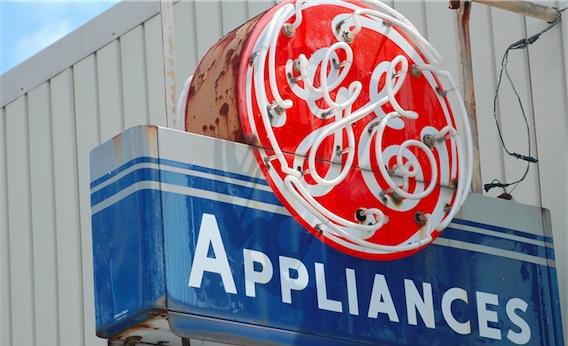The depressing truth is that the easiest way to bring good, high-paying manufacturing jobs back to America is to make them less good and less well-paying:
With labor costs moving down at its appliance factories here, [General Electric] is bringing home the production of water heaters as well as some refrigerators, and expanding its work force to do so.
The wages for the new hires, however, are $10 to $15 an hour less than the pay scale for hourly employees already on staff — with the additional concession that the newcomers will not catch up for the foreseeable future. Such union-endorsed contracts are also showing up in the auto industry, at steel and tire companies, and at manufacturers of farm implements and other heavy equipment, according to Gordon Pavy, president of the Labor and Employment Relations Association and, until recently, the A.F.L.-C.I.O.’s director of collective bargaining.
This is unfortunate, but the reality is that story that begins with mass unemployment is inevitably going to end with lower average real wages. The hope is that the increase in the number of employed people and the increased availability of full-time work leads to higher real incomes. But this goes back to some key points about the magic of currency devaluation. One of the primary mechanisms through which monetary expansion can stimulate a depressed economy is precisely because it does reduce average real wages. But when you reduce wages through monetary expansion rather than nominal wage cuts, you’re undertaking a symmetrical reduction of the real debt burden so your income:debt ratio improves. Attempting to make the needed adjustment purely through nominal wages cuts is slower, more awkward, and much less favorable to families burdened with outstanding mortgages or credit card debts. Part of the political economy of prolonged depressions is precisely that this slower less effective adjustment process is more favorable to wealthy people and some classes of retirees.
